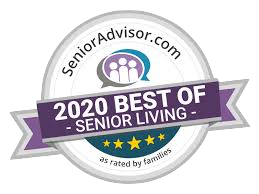Caring for your parents during COVID-19 is no joke. Many families are struggling to raise their kids, keep working, and still care for their elderly parents. With all of the disruption and strain of this pandemic, tasks that used to be easy now feel overwhelming for many folks.
What can you do? As senior care experts, we want to offer you some ideas and encouragement for getting through these difficult days.
How Do I Keep My Elderly Parents Safe From COVID-19?
We hear this question a lot, even months into this pandemic. We all know that the elderly are at the highest risk from COVID-19, especially if they have preexisting conditions. What can you do to help your mom and dad be safe?
Whether they live alone or with you, the best way to protect your aging parents from COVID-19 is to avoid their being exposed at all. This also means keeping yourself from being exposed, as much as possible. These steps are small but powerful safety measures:
- Have a supply of masks that are comfortable and easy to put on
- Wash hands for at least 20 seconds before and after food preparation, toileting, coughing, or leaving the house
- Regularly sanitize all high-touch surfaces, including walkers, canes, and handrails
- Avoid crowds or large social gatherings, even with masks
- Limit visits from non-household members
- Consider delaying unnecessary checkups or transitioning to telehealth
- Avoid all non-essential travel
How do I Keep the Cure From Being Worse Than the Disease?
Isolation puts seniors, especially those who usually rely on a network of outside helpers, at high risk of depression. Physical distancing and social isolation feel like they go hand in hand, but they don’t need to. Here are some simple ideas for helping your parent stay connected during this time:
- Help them connect with family members and friends via video calling
- Have loved ones send photos, cards, and care packages
- Involve them in helpful tasks that meet their level of ability, like creating a scrapbook of family recipes or reading to your children
- Plan coordinated activities, like virtual movie nights or reading the same book together
What Should I Do if I Get Sick While Caregiving?
Do you worry about what to do if you get exposed or become sick while caring for your aging parent?
Every family should have a plan in place before something like this happens. Some people with COVID-19 have no symptoms at all. However, some become seriously ill very fast. That’s why it’s key to plan ahead. You don’t want to have to be making complicated plans or decisions in the middle of an emergency.
It’s wise to create a folder or binder with a written family plan that you or others can access if needed. Some things to consider including in this plan are:
- Emergency contact number(s) for backup caregivers or a respite assisted living residence
- Contact information for your family’s medical caregivers
- Medical prescriptions, dosage, and insurance information
- Copies of power of attorney, advance directives, and other important legal documents
- Notes about any special considerations like dietary restrictions or assistive devices
Think about who might use this plan. The answer will depend on your unique family situation. It may be for your parent, for yourself or a spouse, or an emergency contact.
If your parent forgets things or gets confused, think about posting a highly visible plan for them on the wall or another place they can easily find. This should have simple, step-by-step directions for what they should do in an emergency.
Finally, if you or a family member have been exposed to Coronavirus, all household members should wear masks, even if nobody is showing symptoms. The sick or exposed person should stay in a separate area of the house from others as much as possible.
What Can I Do if This All Feels Like Too Much?
Caregiver burnout is a real and serious problem. If you doubt your ability to safely care for your elderly loved one for any reason, there is help. From video-based therapy to short or long-term assisted living respite care, the best thing you can do for your parent or loved one is to care for yourself so that you can care for them.
If you are looking for help or a safe place for your loved one to go during this crisis, you can reach out to us today to talk about assisted living options and support for caregivers.

